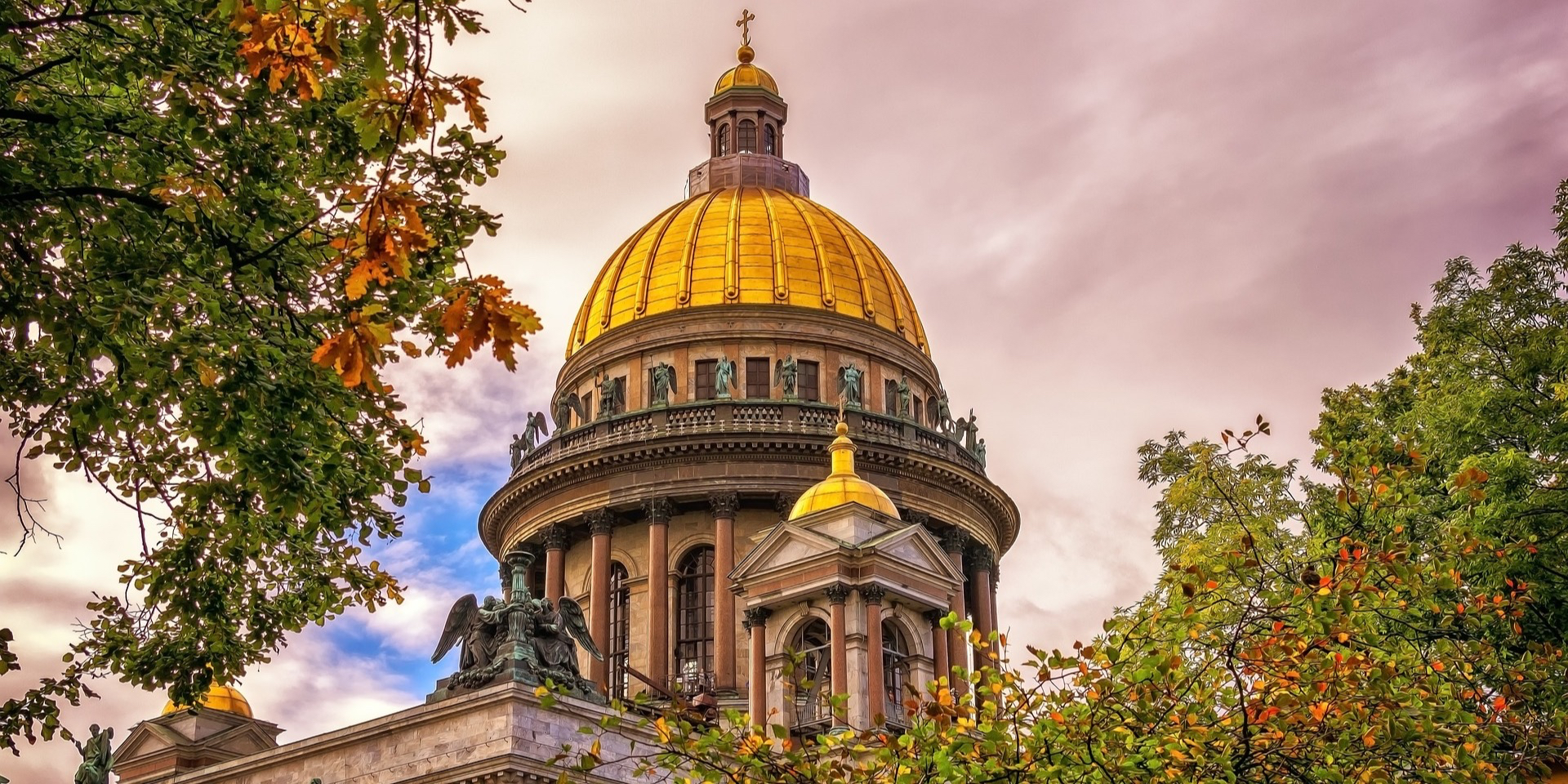Two strangers walk hurriedly through the busy streets of Constantinople. The great bells are quietly ringing out the call to mass, while the semantrons are hastening the footsteps of the faithful towards the place of worship. St Sophia’s Cathedral stands majestically, its gates wide open, awaiting pilgrims seeking salvation.
Everything bears the seal of perfection, from the faces of the saints on the walls to the imposing dome about which, according to legend, the Emperor Justinian spoke the famous words: “Solomon, I have defeated you!” The perfect resonance of the building enhances its grandeur, and guests feel as if they are literally standing at the gates of heaven: “…we knew not whether we were in heaven or on earth… for on earth there is no such splendour or such beauty, and we are at a loss how to describe it. We only know that God dwells there among men.”[1]
This is the reason, according to the old stories, why Vladimir, the cruel Tsar of Kiev, decided to adopt Byzantine Christianity for himself and his people in 988.[2] Russian Orthodoxy has been a key factor in the historical analysis of events in Eastern Europe ever since. With 150 million believers, almost half of the world’s Eastern Orthodox Christians, the Russian Orthodox Church is now the largest Orthodox Christian Church in the world.
Where it all began
According to The Primary Chronicle of Nestor, the first chronicle of Kievan Rus’, a Varangian (as the Byzantines called the Vikings) called Rurik settled in Novgorod after being elected chieftain of several Slavic and Finnic tribes. This was around 860, and in the following period the Varangians managed to extend their rule as far as Kiev, founding the early East Slavic state of Kievan Rus’.
In 955 the Empress Olga, widowed after the assassination of Igor, went to Constantinople and was baptised by the Orthodox Patriarch himself. On her return she tried to convert her son Svatoslav, but her efforts were in vain. Svatoslav had three sons: Yaropolk, Oleg and Vladimir. After Svatoslav’s death, Yaropolk killed Oleg and Vladimir fled to his Scandinavian relatives. With their help he recaptured Novgorod and became King of Kievan Rus’ in 980. He was nearing 20 years of age. The young Varangian king’s thirst for glory would extend his dominion from the Baltic Sea to Poland and the Black Sea, and his kingdom would become one of the most important military powers of the time.
Although Christian elements existed in Russia and his grandmother had been a Christian, Vladimir was a fervent worshipper of pagan deities, building temples and, according to some historians, even taking part in ritual human sacrifice. He had seven wives and is said to have had several hundred concubines.
Vladimir’s Christianisation
Surprisingly, Vladimir later decided to become a Christian. The real reason is still shrouded in mystery. According to some, it was his deep inner turmoil brought on by confrontation with human suffering and death; according to others, it was alliance politics.
Nestor’s Primary Chronicle tells us that Vladimir summoned to the palace the representatives of the religions he knew: Muslims, Jews, Western Christians and Eastern Christians. When he examined their arguments, he found Judaism inconceivable, because it preached a God who had driven them from their land, and Islam sad—the prohibition of alcohol seemed unthinkable. Only Christianity seemed a plausible explanation of existence, but even here he had to choose between East and West. So he sent his emissaries to attend services and they convinced him of the superiority of Eastern Christianity, especially since his grandmother, Empress Olga, had received the same understanding of the Gospel.
But the Arab chronicles give a more nuanced picture. The Emperor of Byzantium, Basil II, had asked him for military aid, and Vladimir was happy to offer it on the condition that he receive the hand of Princess Anne, the sister of the Emperor of Constantinople. But the princess could only marry a Christian prince, so Vladimir would have had to embrace Christianity in order to secure an important position in Eastern Europe.
However, the available historical sources speak of a radical stance in favour of Christianity. He renounced polygamy, tore down idols, cared for the poor and built schools and churches. To support the church, Vladimir introduced the biblical practice of tithing—10% of the state’s income was earmarked for the church. On 1 August 988, the people of Kiev were baptised in the Dnieper in an impressive procession. However, it is known that in the northern part of the kingdom, Christianisation was often carried out by the sword, mainly due to the influence of pagan priests.
The adoption of Slavonic (Old Church Slavonic) as the language of worship brought Christianity closer to the people and gave it a high degree of independence from Byzantium and Rome, where worship and literature were in Greek or Latin. It also facilitated the spread of the works of Cyril and Methodius, among which their translation of part of the New Testament into Slavonic has a place of honour.
In the centuries that followed, especially after the break up of Kievan Rus’, Byzantine Christianity was an important factor in the cohesion of the nation. Vladimir was not canonised until the 19th century, and was often referred to as the “Sun King” or “Equal of the Apostles.”[3]
